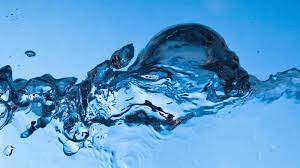Summary sheet
- Common name Acide hyaluronique, Hyaluronan (English), Hyaluronic acid (English)
- Origin Biotechnological synthesis by natural bacterial fermentation
- Main properties Anti-ageing | Antioxidant | Skin hydration | Joint protection
What is theHyaluronic Acid ?
Hyaluronic acid is a molecule that is naturally present in the body, particularly in the skin. dermiswhere it represents almost 50 % of the extracellular matrix. It plays a key role in skin hydration, elasticity and cell regeneration.
As well as providing deep hydrationhyaluronic acid protects against free radicals and slows down skin ageing. Its natural decline with age is responsible for the appearance of wrinkles, skin dryness and loss of elasticity.
Origin and production
Hyaluronic acid was discovered in 1934 by Karl Meyer and John Palmer at thevitreous humour of the bovine eye. Its name comes from the Greek "hyalo", meaning glassybecause of its transparency.
Originally, it was extracted from cock's crestThis method has been replaced by more ethical and sustainable production: bacterial fermentation. This process uses specific bacteria such as Streptococcus equinus and Bacillus subtilisThis guarantees optimum purity and higher yields.
Where does hyaluronic acid occur naturally?
- Skin Hydration and elasticity
- Joints : Lubrication and damping
- Eye Humeur vitrée
- Connective tissue Protection and cell regeneration
It is estimated that the human body contains around 15 g hyaluronic acidof which 5 g are renewed daily. However, its production is gradually decreasing with age, UV exposure and pollution.
Properties and benefits ofhyaluronic acid
Moisturising and anti-ageing
Hyaluronic acid is capable of retain up to 1,000 times its weight in waterwhich makes it an exceptional moisturiser. It helps maintain supple, plumped and luminous skin.
👉 One clinical study has shown that 120 to 240 mg/day significantly improves skin hydration in just 6 weeks (source).
Anti-oxidant action and protection against skin ageing
As well as its moisturising effect, hyaluronic acid has the following properties antioxidant propertiesprotecting cells against free radicals responsible for premature ageing.
👉 A study has shown that hyaluronic acid stimulates the production of collagenreinforcing the skin firmness and elasticity (source).
Joint support and comfort
Hyaluronic acid acts like a natural lubricant in the joints. It helps shock absorption and reduces the pain of osteoarthritis.
👉 A meta-analysis of 13 international studies revealed that oral supplementation of 60 to 240 mg/day significantly reduces joint pain and knee stiffness (source).
Healing and skin protection
Hyaluronic acid promotes cell regeneration and healing wounds, burns and skin irritations.
👉 Research has shown that applying creams or taking hyaluronic acid orally speeds up skin repair after lesions (source).
How is hyaluronic acid used?
Hyaluronic acid is available in several forms:
- Food supplements (capsules, powder)
- Anti-ageing creams and serums
- Injections in aesthetic medicine
- Gels for joint comfort
Recommended dosage
- Skin hydration and beauty 120 to 240 mg/day
- Joint support and anti-ageing 200 to 300 mg/day
- Treatment of severe joint pain up to 500 mg/day
👉 A treatment lasting 2 to 3 months is recommended for optimal, long-lasting results.
Precautions and contraindications
Possible side effects
Hyaluronic acid is well tolerated by the body, but excessive consumption can cause :
- Digestive problems (bloating, nausea)
- Rare allergic reactions in cases of intolerance
Precautions for use
- Not recommended in known allergies with hyaluronic acid
- Avoid during pregnancy and breastfeeding (insufficient data)
Suggested associations
To optimise the benefits of hyaluronic acid, it can be combined with other active ingredients:
- Skin and anti-ageing → Marine collagen, Brewer's yeast
- Joint comfort → Chondroitin, Glucosamine, Harpagophytum
- Protection against free radicals → Vitamin C, Resveratrol
Summary and opinion onhyaluronic acid
Hyaluronic acid is an essential active ingredient for keep skin hydrated, fight wrinkles and support joints. Thanks to its power moisturising, antioxidant and regeneratingIt is an essential ally for well-being and healthy ageing.
Regular supplementation helps to slow down the signs of ageing, improve joint comfort and maintain radiant skin.
Scientific sources
David-Raoudi M, et al. Differential effects of hyaluronan and its fragments on fibroblasts: relation to wound healing. Wound Repair Regen. 16(2): 274-87. (source)
Kawada C, Yoshida T, et al. Ingested hyaluronan moisturizes dry skin. Nutr J. 2014; 13: 70. (source)
Oe M, Tashiro T, et al. Oral hyaluronan relieves knee pain: a review. Nutr J. 2015; 15: 11. (source)
Hyaluronic Acid
Hyaluronic acid is a molecule naturally present in the skin, known for its exceptional ability to retain moisture. It hydrates the skin, reduces wrinkles and improves skin elasticity. It is a popular ingredient in skincare products to promote smoother, more hydrated skin.











